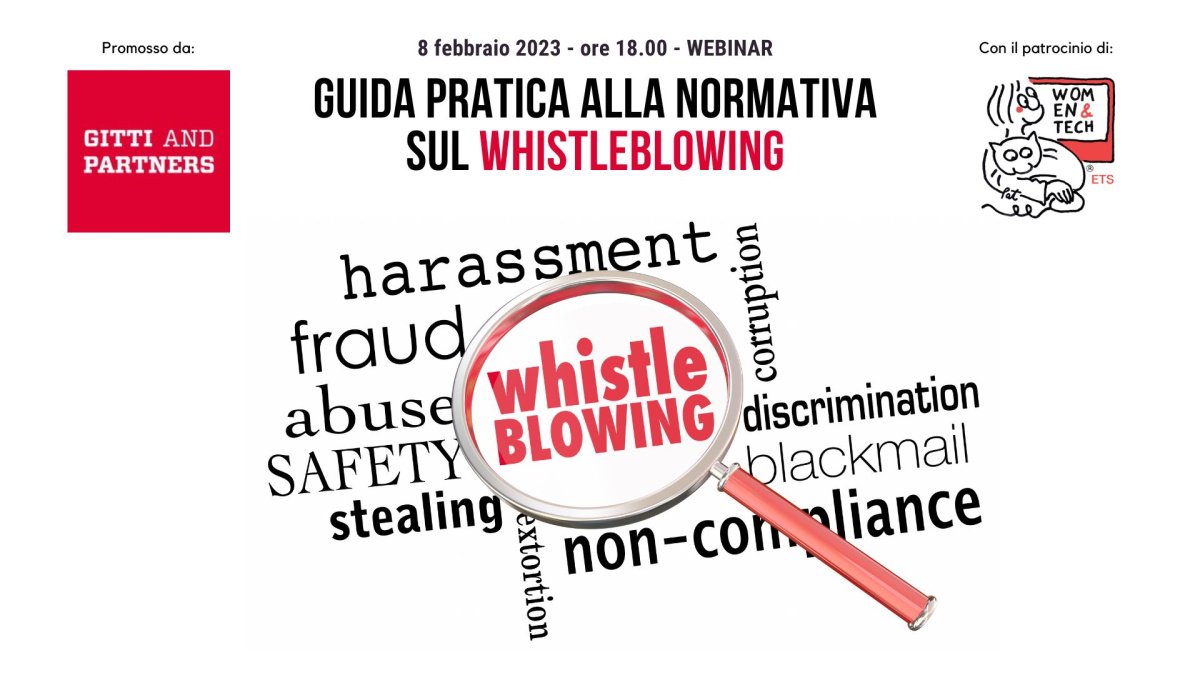
The new legislation on whistleblowing could lead to a significant cultural change in Europe and in Italy. Supporting those who report civil, criminal, administrative, and accounting wrongdoings promotes a system for preventing legal violations, fighting corrupt practices, and uncovering discrimination that could revolutionize an ethical sense that – at least in Italy – is often hindered by protecting close friendships, at the expense of combating illegal behavior. The provision of channels for reporting, even anonymously, and protection from any form of repercussions against the whistleblower will incentivize workers to fight distrust or reluctance, contributing to the creation of a culture based on principles of transparency and legality, essential for the well-being and growth of organizations. The interest is therefore both individual and collective. Managing reports will require specific skills, including technological ones, that will be part of the cultural baggage of future workers.
Pamela Coyle Brecht Partner Pietragallo Gordon Alfano Bosick & Raspanti, LLP
INTRODUCTION: the "to do list" for the private enterprise
Paola Sangiovanni Partner Gitti and Partners - Studio Legale AssociatoConfidentiality, privacy, and data retention
Flavio Monfrini Partner Gitti and Partners - Associated Law FirmThe protection of the whistleblower
Elisa Mapelli Counsel Gitti and Partners - Law Firm AssociationThe external reporting channel
Laura Sommaruga Partner Gitti and Partners - Legal FirmCriminal profiles and the role of the Ombudsman
Fabrizio Sardella Counsel Gitti and Partners - Legal FirmComparative insights: how whistleblowing works in the U.S.
Marc Raspanti Partner Pietragallo Gordon Alfano Bosick & Raspanti, LLPPamela Coyle Brecht Partner Pietragallo Gordon Alfano Bosick & Raspanti, LLP
Q&A and conclusions
Paola Sangiovanni Partner Gitti and Partners - Studio Legale AssociatoRegistration for the webinar:
Connect to https://attendee.gotowebinar.com/register/6784796412492750679
